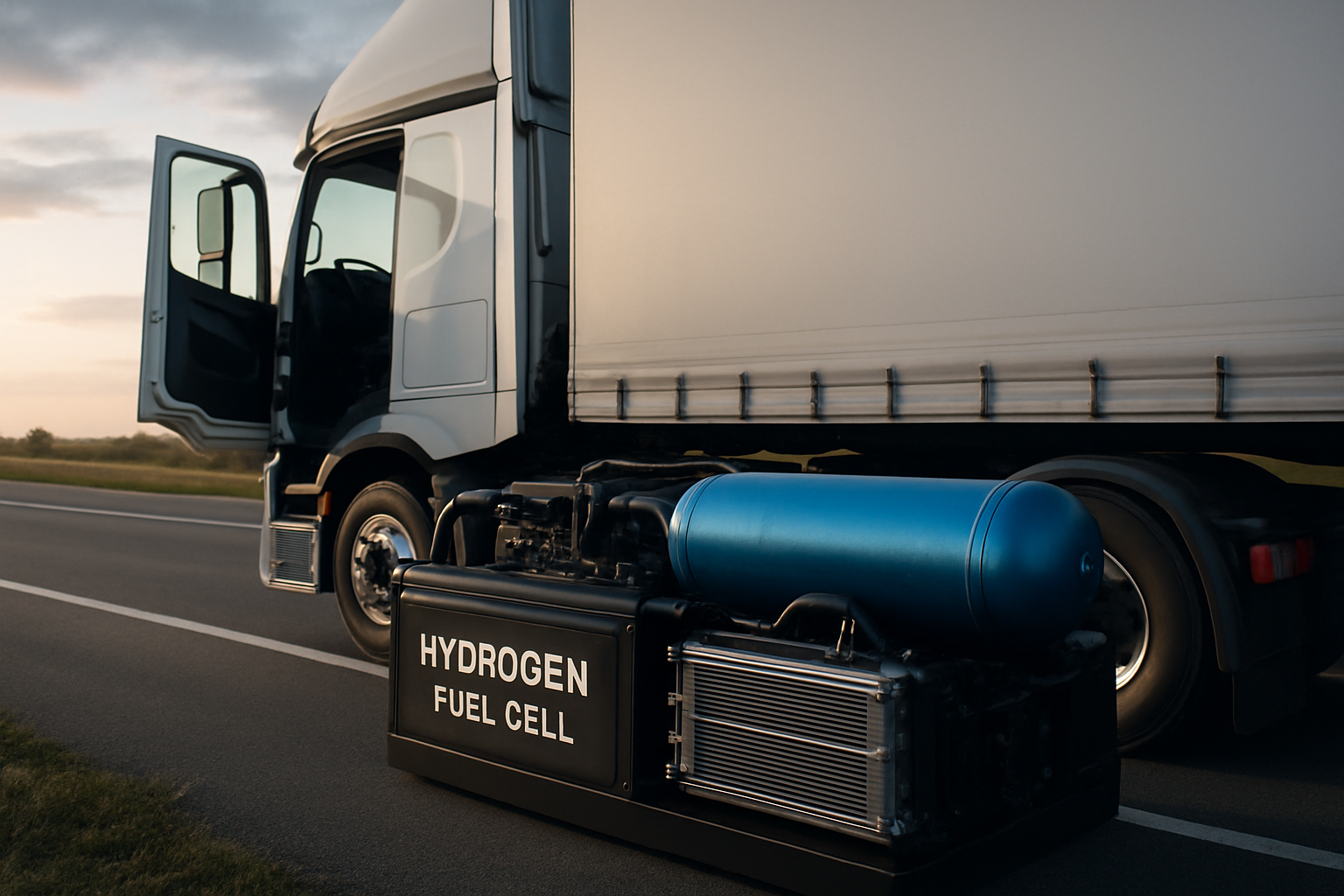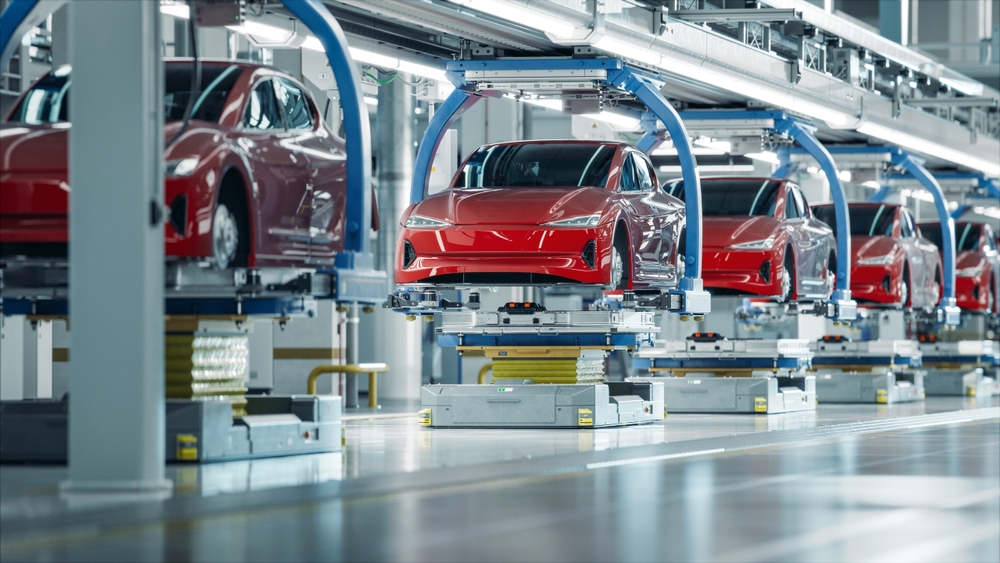Hydrogen Fuel Cells: The Quiet Revolution in Long-Haul Trucking
The rumble of diesel engines has long been the soundtrack of highways, but a new player is poised to change the tune of long-haul trucking. Hydrogen fuel cell technology, once relegated to the realm of science fiction, is now making significant inroads in the commercial trucking industry. This shift promises not only to reduce emissions but also to redefine the economics and logistics of freight transportation. As we stand on the cusp of this transformation, it's time to explore the potential and challenges of hydrogen-powered big rigs.

The Science Behind Hydrogen Fuel Cells
At the heart of hydrogen fuel cell technology lies a remarkably efficient electrochemical process. Unlike traditional combustion engines, fuel cells generate electricity through a chemical reaction between hydrogen and oxygen. This process produces only water and heat as byproducts, making it an exceptionally clean energy source.
In a fuel cell, hydrogen gas flows into the anode, where it’s split into protons and electrons. The protons pass through a membrane to the cathode, while the electrons are forced through an external circuit, generating electricity. At the cathode, these components combine with oxygen from the air to form water. This continuous process powers electric motors, propelling the vehicle forward with zero harmful emissions.
Advantages for Long-Haul Trucking
The benefits of hydrogen fuel cells for long-haul trucking are numerous and significant. First and foremost is the extended range. While battery-electric trucks struggle with limited range and long charging times, hydrogen-powered trucks can cover distances comparable to diesel trucks and refuel in a matter of minutes.
Moreover, hydrogen fuel cells maintain their performance in extreme temperatures, a crucial factor for trucks operating in diverse climates. The consistent power output regardless of load or terrain makes them ideal for hauling heavy cargo over long distances.
Another advantage is the potential for decentralized fuel production. Hydrogen can be generated on-site at refueling stations using renewable energy sources, reducing dependence on centralized fuel distribution networks and potentially lowering costs in the long run.
Infrastructure Challenges and Solutions
Despite its promise, the widespread adoption of hydrogen fuel cell trucks faces significant hurdles, primarily in infrastructure development. The current lack of hydrogen refueling stations poses a chicken-and-egg problem: fleets are hesitant to invest in hydrogen trucks without adequate refueling infrastructure, while fuel providers are reluctant to build stations without guaranteed demand.
However, innovative solutions are emerging. Collaborative efforts between truck manufacturers, energy companies, and governments are leading to the development of hydrogen corridors along major freight routes. These strategic placements of refueling stations are designed to support the initial rollout of hydrogen trucks and stimulate further infrastructure growth.
Additionally, advancements in hydrogen production and storage technologies are making on-site generation more feasible. This could lead to a network of smaller, distributed refueling stations that can grow organically with demand, potentially accelerating infrastructure development.
Economic Implications for the Trucking Industry
The transition to hydrogen fuel cell trucks represents a significant shift in the economics of freight transportation. While the initial cost of hydrogen-powered trucks is currently higher than their diesel counterparts, the long-term operational costs could be substantially lower.
Fuel efficiency improvements, reduced maintenance needs due to fewer moving parts, and potential government incentives for clean energy adoption all contribute to a compelling economic case for hydrogen trucks. As production scales up and technology advances, the cost of fuel cells is expected to decrease, further improving the economic viability of hydrogen-powered fleets.
Moreover, as carbon taxes and emissions regulations become more stringent, the zero-emission nature of hydrogen fuel cells could provide a significant competitive advantage for early adopters in the trucking industry.
Environmental Impact and Sustainability
The environmental benefits of hydrogen fuel cell trucks extend beyond zero tailpipe emissions. When produced using renewable energy sources, hydrogen becomes a truly clean fuel from well to wheel. This potential for green hydrogen production aligns perfectly with global efforts to decarbonize the transportation sector, which is responsible for a significant portion of global greenhouse gas emissions.
However, it’s important to note that the current methods of hydrogen production, primarily through natural gas reforming, still have a carbon footprint. The challenge lies in scaling up green hydrogen production to meet the potential demand from the trucking industry and other sectors.
Efforts are underway to develop more efficient electrolysis technologies and to harness excess renewable energy for hydrogen production. These advancements could lead to a virtuous cycle where increased demand for hydrogen fuel cells drives investment in cleaner production methods, further enhancing the technology’s environmental benefits.
The Road Ahead: Challenges and Opportunities
As with any emerging technology, the path to widespread adoption of hydrogen fuel cell trucks is not without obstacles. Technical challenges such as improving fuel cell durability and reducing production costs are ongoing areas of research and development.
There’s also the need for standardization in refueling protocols and safety regulations to ensure interoperability and public confidence in the technology. Collaboration between industry stakeholders, policymakers, and researchers will be crucial in addressing these challenges.
Despite these hurdles, the potential benefits of hydrogen fuel cell technology for long-haul trucking are too significant to ignore. As pilot programs demonstrate success and infrastructure continues to develop, we can expect to see an acceleration in adoption rates.
The transition to hydrogen-powered trucks represents more than just a technological shift; it’s a reimagining of the entire freight transportation ecosystem. From cleaner air in urban areas to reduced dependence on fossil fuels, the ripple effects of this transition could be far-reaching and transformative.
As we look to the future, the quiet hum of hydrogen fuel cell trucks may soon become the new sound of progress on our highways. This technology holds the promise of a cleaner, more efficient, and sustainable future for long-haul trucking, paving the way for a greener transportation industry and a healthier planet.






